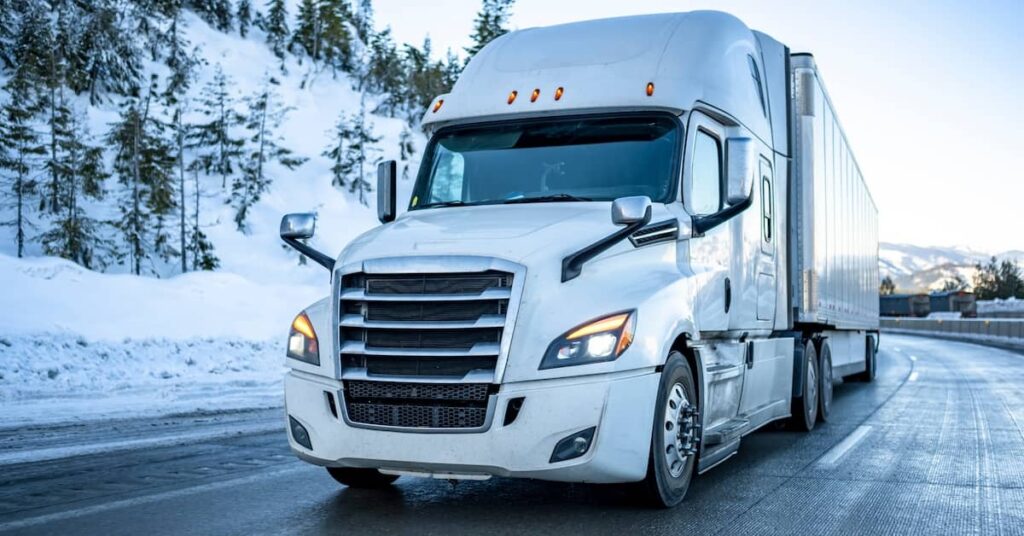
Are Truck Drivers Liable for Snow and Ice Accidents?
Snow and ice truck accidents are far too common on Colorado’s roads. On the plains and in the high country alike, accidents between 18-wheelers and passenger vehicles occur during wet and slippery conditions with alarming frequency, resulting in hundreds of serious and fatal injuries every year.
When you or someone you love is a victim in an accident with a large commercial vehicle, having a lawyer on your side helps to ensure you are treated fairly while you seek the full compensation you deserve.
Contact a Colorado Snow and Ice Truck Accident Lawyer for FREE
To schedule a FREE and confidential consultation with one of the icy road truck crash lawyers at Burg Simpson, call our Denver office at 303-792-5595 today. Our lawyers have been helping victims of serious injuries throughout Colorado for nearly 50 years. We look forward to meeting with you, listening to your story, and helping you determine the best course of action for your claim.
Leading Causes of Snow and Ice Truck Accidents in Colorado
According to the Colorado State Patrol, speeding is the largest cause of fatal and serious injury crashes during winter conditions, increasing the risk of collision 2.5x over. Additional risks include:
- Inadequate traction equipment
- Unsafe speed for conditions
- Following too closely and poor space management
- Driver fatigue
- Driver distraction
- Improper maintenance
- Bad or mismatched tires
- Inexperience with mountain driving
- Visibility failures
While snow and ice truck accidents can occur anywhere in the state, mountain routes often pose the largest risks. Rapid changes in weather, combined with steep grades and stop-and-go traffic, all increase the likelihood of a serious or fatal crash. These accidents are made more tragic by the simple fact that responsible driving can often help to prevent them.
When steps are not taken to prevent a crash and serious injury follows, a truck collision attorney from Burg Simpson can help you understand liability, assess your options, and move your case forward.
The Role of Chains in Preventing Truck Accidents on Colorado Highways
From September 1 through May 31, commercial trucks traveling on I-70 between Dotsero and Morrison must carry sufficient chains. When safety requires it, trucks with four or more drive wheels must chain at least four of the drive tires before driving anywhere along this stretch of interstate.
There are traction and chain requirements for passenger vehicles on I-70 as well. When a snow and ice truck accident occurs between a passenger vehicle and an 18-wheeler, chain use by both parties may become a relevant issue.
Around half of all weather-related truck crashes occur during snowy and icy weather. Throughout Colorado’s most trafficky mountain corridors, like Highway 14, I-70, US 40, and US 50, snow and ice are often slower to melt and dry. This can make them a hazard for truckers even days after a storm. If chains are not properly utilized by truck drivers, crashes on these often tight and twisty roads are much more likely. Failure to use chains when required can increase a trucker’s liability when a collision occurs.
At Burg Simpson, our wet-weather truck accident lawyers review chain usage, weather patterns, and road conditions at the time of the crash, enabling us to identify negligent behavior and hold the responsible party to full account.
Who Can Be Held Liable for Snow and Ice Truck Accidents?
As with big rig collisions on dry and clear days, there can be several parties who share responsibility for snow and ice truck accidents. This can include:
- The truck driver. Speeding, driving too fast for conditions, improper braking, following too closely, failing to chain up, and other issues related to driving can place liability squarely on the trucker’s shoulders.
- The motor carrier (trucking company). Companies can be held liable for improper training or supervision, poor fleet maintenance, unrealistic scheduling that requires unsafe speeds, or pressuring drivers to roll through chain-law activations.
- Maintenance contractors or shops. Faulty brake work, mounting the wrong tires, or skipping required inspections can result in liability shared by maintenance companies and employees.
- Shipping and loading companies. An improperly balanced load or inadequate securing of cargo can quickly turn a manageable slide into a jackknife or rollover, making those responsible for loading and securing cargo potentially liable.
- Other motorists or roadway users. A passenger vehicle that spins out with bald all-seasons and causes a commercial vehicle to take evasive action, or in any other way contributes to a crash, can share liability.
In some cases, government entities can also be held partially accountable for winter truck crashes due to negligent snow or ice removal, missing or broken warning signs, or construction zones that are difficult to navigate.
Your actions may play a role in a truck crash during icy and snowy weather as well. However, unless you are found more than 50% liable for an accident, you will still be able to seek compensation for your injuries. Your damages will simply be reduced by the percentage of fault you are assigned. So, for example, if you were awarded $500,000 but found to be 25% liable, your damages would be reduced to $375,000.
How Is Liability Determined in Inclement Weather Truck Accidents?
Liability is not always obvious. It may require a thorough investigation into your accident to uncover all contributing factors. Depending on the circumstances surrounding your crash, this may include a review of:
- ELD and telematics data, such as speed, throttle, lane departure alerts, and braking patterns.
- Video footage from dash cams, traffic cameras, and nearby businesses.
- Chain-law and traction-law status at the time of the wreck, including CDOT activation logs and trooper reports.
- Vehicle condition evidence, such as tire measurements, brake assessments, maintenance logs, and pre-trip inspection reports.
Scene forensics may also be needed to fully determine who was at fault. This can include skid pattern and yaw mark evaluations, analysis of gouges in the pavement, a review of crush patterns, and time-matched weather and visibility data, all of which can help to unravel the events that led up to a collision.
Based in Denver, Burg Simpson is an award-winning law firm with locations throughout the country. We have the resources, both in-house and through partnership with external specialists, to fully investigate these crashes. Thorough in our assessments and tireless in our representation, we are prepared to look carefully at snow and ice truck accidents, identify their causes, and help victims of serious injury seek justice.
Do Snow and Ice Truck Accidents Require Legal Assistance?
You are never required to have an attorney. When you are hurt badly in a crash with a commercial vehicle, however, you will likely want one. Trucking companies, their drivers, and others involved in commercial trucking are well-protected against injury claims. With legal teams and insurers on their side, your rights and options can quickly become confused when you rely on them for fair treatment. Having a lawyer protect you against their tactics, present a compelling and fact-based argument for compensation, and fight for full damages helps to ease the process and ensure you are not walked all over.
The compassionate and experienced lawyers at Burg Simpson have been helping victims of snow and ice truck accidents in Colorado for nearly 50 years. We know how to properly assess and fight for damages, and we are prepared to take claims as far as necessary to secure justice.
We have seen firsthand how trucking companies and insurers attempt to reduce liability and pin blame on others. We are not swayed. We are here to hold all negligent parties accountable as we help you seek the maximum compensation you deserve.
Talk to One of Our Colorado Truck Collision Lawyers Today
Snow and ice truck accidents demand the attention of a lawyer who understands Colorado weather, chain laws, and the realities of mountain driving. The attorneys at Burg Simpson are here to help. Use our online contact form or call our Denver office today to schedule a FREE case review and let us help you fight for the compensation you are due.





